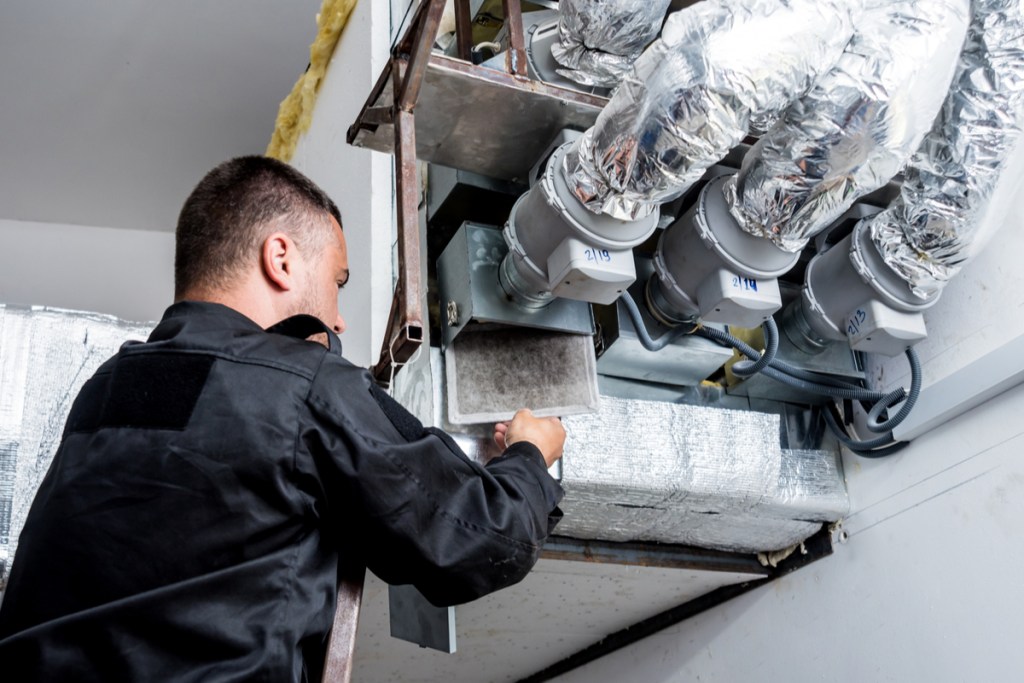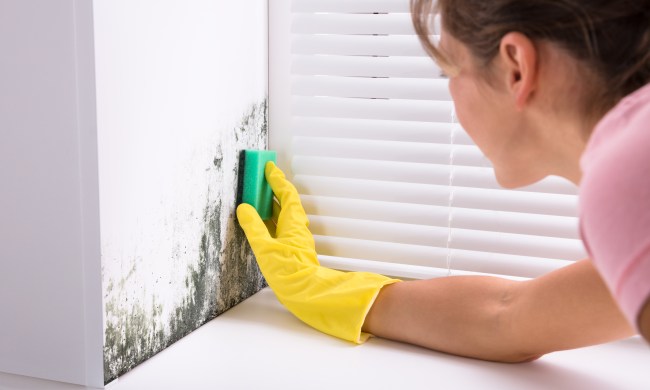Clean air ducts are the key to a clean home. While they aren’t as visible as sparkling counters and waxed floors, these ducts can impact how the house smells and even affect the health and wellbeing of you, your family members, and your pets. This is because a building’s Heat Ventilation and Air Conditioning (HVAC) system can filter pet dander, pollen, mildew, bacteria, mold spore, and more to disperse clean, allergen-free air throughout your entire home.
If you’re wondering if it’s necessary to clean air ducts, the answer is a resounding ‘Yes!’ Establishing a regular cleaning and maintenance schedule will keep your HVAC system running properly. If you’re ready to breathe easier and even save money on your utility bill, read on to learn everything you need to know about keeping clean air in your home.
 Top 5 benefits of clean air ducts
Top 5 benefits of clean air ducts
- Dust reduction: When an HVAC technician comes by to clean out the ducts, they remove any lingering dust that would have ended up circulating throughout your vents, coating your furniture, bedding, flooring, countertops, and more. A little bit of dust is unavoidable, but clean ducts dramatically reduce the amount of dusting needed to maintain a clean home.
- Fewer allergens in the air: On top of dust, air ducts can also contain harmful micro-organisms and contaminants including bacteria, pollen, mildew, mold spores, pet dander, and more. If you or a member of your family suffer from asthma, allergies, or other respiratory issues, these airborne particles can be damaging to their health.
- Better breathing: You don’t have to suffer from allergies or respiratory problems to benefit from cleaner air inside your home. After all, dust can trigger sneezing and coughing, in even the healthiest noses and lungs. By regularly cleaning these ducts, you can create a more comfortable environment and rest easy knowing your lungs breathing in only the best.
- Eliminate odors: When your furnace or air conditioner is running, all of the unpleasant odors in the air can circulate throughout your house. This means odors from pets, cleaning products, tobacco, food prep (hello, fried fish), and dust and dirt can lead to musty, musky scents emanating from your ductwork. A clean air duct and fresh filter can trap and remove odorous particles and give you a fresher-smelling home.
- More efficient airflow: When dust and grime build up in your ductwork, it can restrict the flow of air from your furnace or air conditioner. The HVAC system then has to work harder to pump the same amount of air throughout the house, making for an inefficient system. When your system is clean, it will deliver peak performance and provide the best results for your energy dollars.
 How often should your air ducts be cleaned?
How often should your air ducts be cleaned?
If they’re doing their job right, eventually, your ducts and filters will collect debris. While changing your filters regularly is also a great habit, that doesn’t replace a professional vacuuming of the entire HVAC system. Particularly if you live near a construction site or in a high-pollution area, your ducts will get clogged with particles fairly quickly. This reduces the air quality in your home when the HVAC is running and becomes especially dangerous for those with respiratory issues.
The average HVAC duct system should be cleaned approximately every two to five years. If you regularly change your filters about twice a year and properly maintain your system, you can increase the time between professional cleanings. When it comes to fresh air, though, it’s always better to be safe than sorry, so stay closer to the cadence of a two-year cleaning.
If you can’t remember the last time your system was cleaned, it’s probably overdue. Once you’ve had your air ducts cleaned, you’ll be amazed at the difference in how your HVAC system’s efficiency as well as the reduction to your utility bill.
The final word… Although you might be tempted to clean the ducts yourself, the results will not be the same as hiring a reputable professional. It may cost more to bring in an expert technician, but the end result will be worth every penny. Unless you have experience and access to professional tools, air duct cleaning is not the time to DIY it.
 Top 5 benefits of clean air ducts
Top 5 benefits of clean air ducts How often should your air ducts be cleaned?
How often should your air ducts be cleaned?


